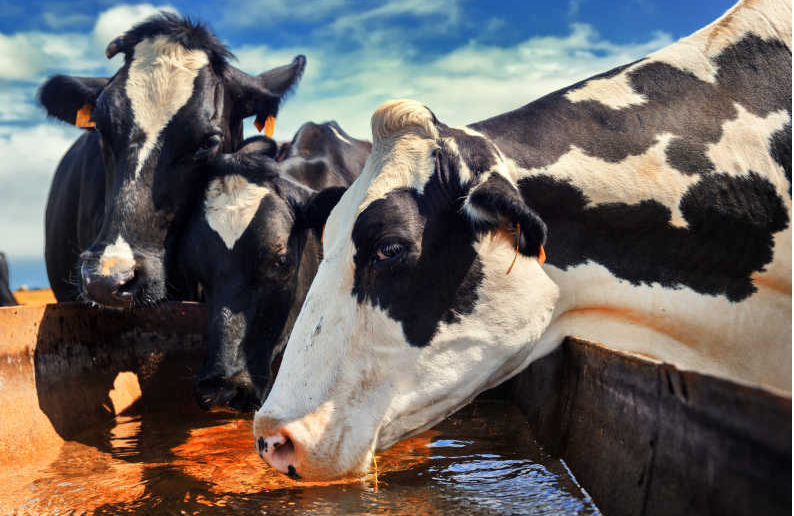
1. Introduction
Ensuring proper nutrition for animals is essential for their growth, productivity, and overall health. While macronutrients like protein, carbohydrates, and fats are crucial, minerals play an equally vital role in animal nutrition. Minerals are essential nutrients required in relatively small quantities but are responsible for numerous physiological functions in the animal’s body. However, many animal feeds commonly lack certain minerals, leading to potential health issues. In this article, we will explore three major minerals that are commonly deficient in animal feeds and the consequences of such deficiencies.
2. Importance of Minerals in Animal Feeds
Minerals are involved in various physiological processes, including bone development, enzyme activation, immune system support, and nerve transmission. They are critical for maintaining proper metabolic functions in animals. Without adequate mineral intake, animals may experience growth retardation, decreased reproductive performance, and weakened immune systems.
3. Major Minerals Deficiency in Animal Feeds
3.1 Calcium
Calcium is one of the most essential minerals required for animals. It is vital for bone formation, muscle contraction, and nerve function. Diets low in calcium can lead to weak bones, skeletal deformities, and reduced eggshell quality in poultry.
3.2 Phosphorus
Phosphorus works closely with calcium to support bone development. It is also involved in energy metabolism, DNA synthesis, and acid-base balance. A lack of phosphorus can lead to poor growth, reduced fertility, and appetite loss in animals.
3.3 Magnesium
Magnesium is essential for enzyme function, energy production, and nerve transmission. Deficiency in magnesium can result in nervous disorders, muscle tremors, and reduced milk production in dairy animals.
4. Consequences of Mineral Deficiency
Mineral deficiencies can have severe consequences on animal health and productivity. Animals may suffer from stunted growth, weakened immune systems, reduced milk production, and reproductive issues. Inadequate mineral intake can also result in increased susceptibility to diseases and metabolic disorders.
5. Sources of Minerals in Animal Feeds
To address mineral deficiencies, animal feed formulations should include diverse sources of minerals. Common sources include mineral-rich feed ingredients, such as bone meal, fishmeal, and mineral premixes. Additionally, grazing animals can obtain essential minerals from forages and pasture plants.
6. Balancing Mineral Content in Animal Diets
6.1 Formulating Balanced Rations
Creating balanced animal rations requires understanding the specific mineral needs of each species. Formulating diets that meet these requirements helps prevent mineral imbalances and deficiencies.
6.2 Use of Mineral Supplements
In some cases, natural feed sources may not provide sufficient minerals. In such instances, providing mineral supplements can bridge the nutritional gap and ensure optimal health.
6.3 Role of Feed Additives
Feed additives containing chelated minerals or organic complexes can enhance mineral absorption and utilization in animals. These additives improve the bioavailability of minerals, promoting better nutrient uptake.
7. Strategies to Enhance Mineral Absorption
To maximize mineral absorption, certain strategies can be employed. For example, feeding a balanced diet that matches an animal’s physiological needs improves nutrient absorption. Proper management practices, such as reducing stress and providing clean water, also contribute to better mineral utilization.
8. Conclusion
In conclusion, minerals are vital components of animal nutrition, and their deficiency can have severe repercussions on animal health and productivity. Calcium, phosphorus, and magnesium are three major minerals commonly lacking in animal feeds. To ensure animals receive adequate minerals, balanced diets, mineral supplements, and feed additives play a crucial role. By addressing mineral deficiencies, we can support animal health and well-being, leading to improved performance and productivity.
9. FAQs
Q1: Can mineral deficiencies be identified through animal behavior?
Yes, in some cases, certain behavioral changes, such as reduced feed intake, decreased milk production, and abnormal gait, can indicate possible mineral deficiencies.
Q2: Are mineral supplements suitable for all animals?
Mineral supplements should be tailored to the specific needs of each animal species and their life stage. Consult with a veterinarian or animal nutritionist to determine the appropriate supplements.
Q3: Can excess minerals be harmful to animals?
Yes, excessive mineral intake can lead to toxicities and adverse health effects. It is crucial to avoid over-supplementation and carefully balance mineral content in animal diets.
Q4: What are some natural sources of magnesium for animals?
Green leafy vegetables, legumes, and certain nuts are good natural sources of magnesium for animals.
Q5: How often should mineral content in animal diets be reviewed?
Mineral content in animal diets should be regularly reviewed and adjusted as per the animal’s growth stage, reproductive status, and environmental conditions.
